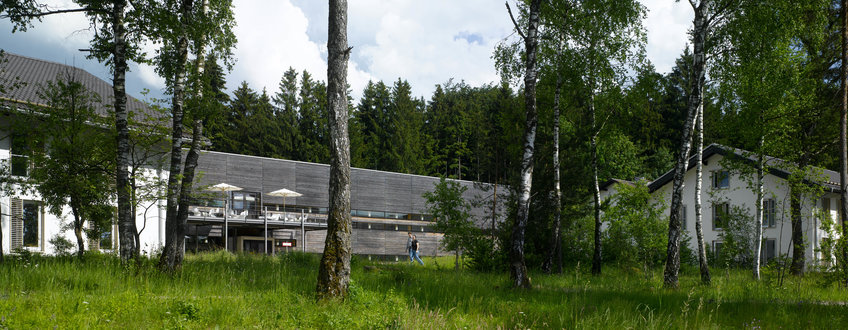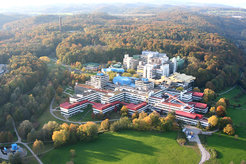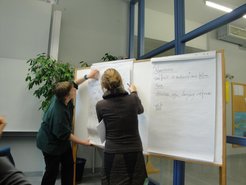
Program
The IMPRS for Organismal Biology is coming to an end in February 2023 and is not announcing new doctoral projects.Take a look at our successor programs - IMPRS for Quantitative Behaviour, Ecology & Evolution and IMPRS - Biological Intelligence.
Ususally, all IMPRS for Organismal Biology fellows are enrolled as doctoral candidates at the University of Konstanz (U KN). It is also the U KN who awards the degree title Dr. rer. nat. (the German doctorate which corresponds to the American PhD). Participation in the IMPRS for Organismal Biology will be documented on the official doctorate certificate. The graduation criteria of the U KN, as laid down in the regulation for Doctoral Studies in Biology department (Promotionsordnung Biologie), are therefore applied to their full extent. However, foreign students may choose whether to graduate at the U KN or at their home university. In general, the doctoral work should be completed within three years. All scientific work in the program is based on the Max Planck Society's Rules of Good Scientific Practice. The program with all rights and duties of faculty and fellows is laid down in the Agreement of the IMPRS for Organismal Biology.

Thesis and Supervision
The IMPRS for Organismal Biology program consists of the doctoral thesis and an additional curriculum. The thesis will be conducted under the guidance of the direct supervisor and a thesis advisory committee (TAC).
Doctoral thesis. Independently compiled scientific output of the doctoral work. It has to be written in English and should be composed of several single scientific manuscripts with a detailed summary in English and German.
Direct supervisor. Senior scientist and IMPRS for Organismal Biology faculty member in whose lab the student is performing their research work.
Thesis advisory committee (TAC). Committee of at least three senior scientists who will guide the doctoral candidate in all aspects of their work.

Additional Curriculum
The additional curriculum contains:
Transferable skills -workshops on any personal skills which will improve the fellow’s employment opportunities and future career performance in academia and elsewhere.
Specific research skills -training in techniques that are relevant for research in organismal biology.
Outreach -presentations of results at international conferences, publications in international journals, and explanation of one’s own scientific work to the general public.
Other scientific activities -all other activities that are relevant for a scientific career (e.g. organization of scientific events) can also be credited.
All of these curricular elements should be shaped to the specific demands of every single fellow.
The doctoral training is completed with the following curricular elements:
Scientific events of the lab Active participation in events organized by the supervisor’s lab such as lectures, lab seminars, or journal clubs.
IMPRS events Active participation in symposia and retreats organized by the IMPRS for Organismal Biology two or three times a year.
The participation in the IMPRS for Organismal Biology and the detailed additional curriculum will be certified individually by the IMPRS.

